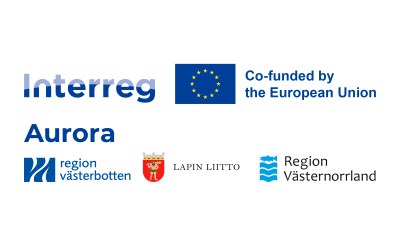GreenBattery
- 1.1.2023-31.12.2025
- Interreg Aurora
- Interreg Auora/GreenBattery
Tiivitelmä
- Interreg Aurora projekti, GreenBattery tähtää uuden kestävän akkuprototyypin rakentamiseen. Projektiin osallistuvat RISE Processum, Oulun yliopisto, Vaasan yliopisto, Swedish University of Agricultural Sciences ja Kokkolan yliopistokeskus Chydenius. Projektin ydinajatuksena on luoda akkuprototyyppi vihreistä (tai vihreämmistä) komponenteista ilman akun suorituskyvyn laskua.
- Energian varastointi on nopeasti kasvava tutkimusala. Yhteiskunnassa tarvitaan runsaasti uusia sähköenergiavarastoja digitaalisten laitteiden, kannettavan elektroniikan, sähköajoneuvojen yms. määrän kasvaessa, joten energiavarastoina toimivien akkujen tarve kasvaa tulevina vuosina. Tähän tarpeeseen vastaaminen ilman negatiivista ympäristövaikutusta vaatii entistä kestävämpiä akkuvaihtoehtoja.
- GreenBattery-projektissa käytetään metsäteollisuuden sivuvirtoja, kuten (hydrolyysi-)ligniiniä, biolietettä, kuitulietettä, puun kuorta, tuhkaa ja suodatuksen pölyä jne. korvaamaan akkujen fossiilisia tai myrkyllisiä komponentteja. Tutkimus on jaettu pienempiin alakokonaisuuksiin, joissa keskitytään anodin, katodin, elektrolyytin ja sidosaineen kehitykseen. Akun kokoonpanossa huomioidaan erityisesti akkukennonlinjan kestävyys EU:n vihreän siirtymän kriteerien mukaisesti. Teknillistaloudellisilla analyyseillä (TEA) määritetään teknillistaloudellisia tekijöitä ja verrataan biopohjaisia akkuja perinteisiin litiumakkuihin.Projektissa myös hyödynnetään elinkaariarviointia (LCA) biopohjaisten akkujen ympäristötehokkuuden arvioimiseksi.
Abstract
- The Interreg Aurora project GreenBattery aims to build a prototype of a new sustainable battery. RISE Processum, University of Oulu, University of Vaasa, Swedish University of Agricultural Sciences and Kokkola University Consortium Chydenius participate in the project. The key idea is to establish a battery prototype with green (or greener) components without compromising the performance of the battery.
- Energy storage is a rapidly growing field of research and society is in great need of new electrical energy storage systems due to the rapid expansion of digital devices, portable electronics, electric vehicles, etc. Batteries are a type of energy storage system with high increased demand in the coming years. More durable battery alternatives are needed to meet this demand in a way that does not negatively affect the environment.
- The project will use residual products from the forest industry such as (hydrolysis) lignin, bio sludge, fiber sludge, bark, ash and filter dust etc. to replace fossil elements or toxic compounds in batteries. The research will be divided into sub-WPs, focusing on the anode, cathode, electrolyte and binder development. During cell assembly, specific focus is placed on the durability of battery cell lines to meet the criteria for green transition at EU level. We will carry out a Techno-economic analyzes (TEA) to evaluate techno-economic parameters and compare bio-based batteries against traditional lithium batteries. The project will also assess environmental performance of biobatteries by applying life cycle assessment (LCA).
Mer information på svenska